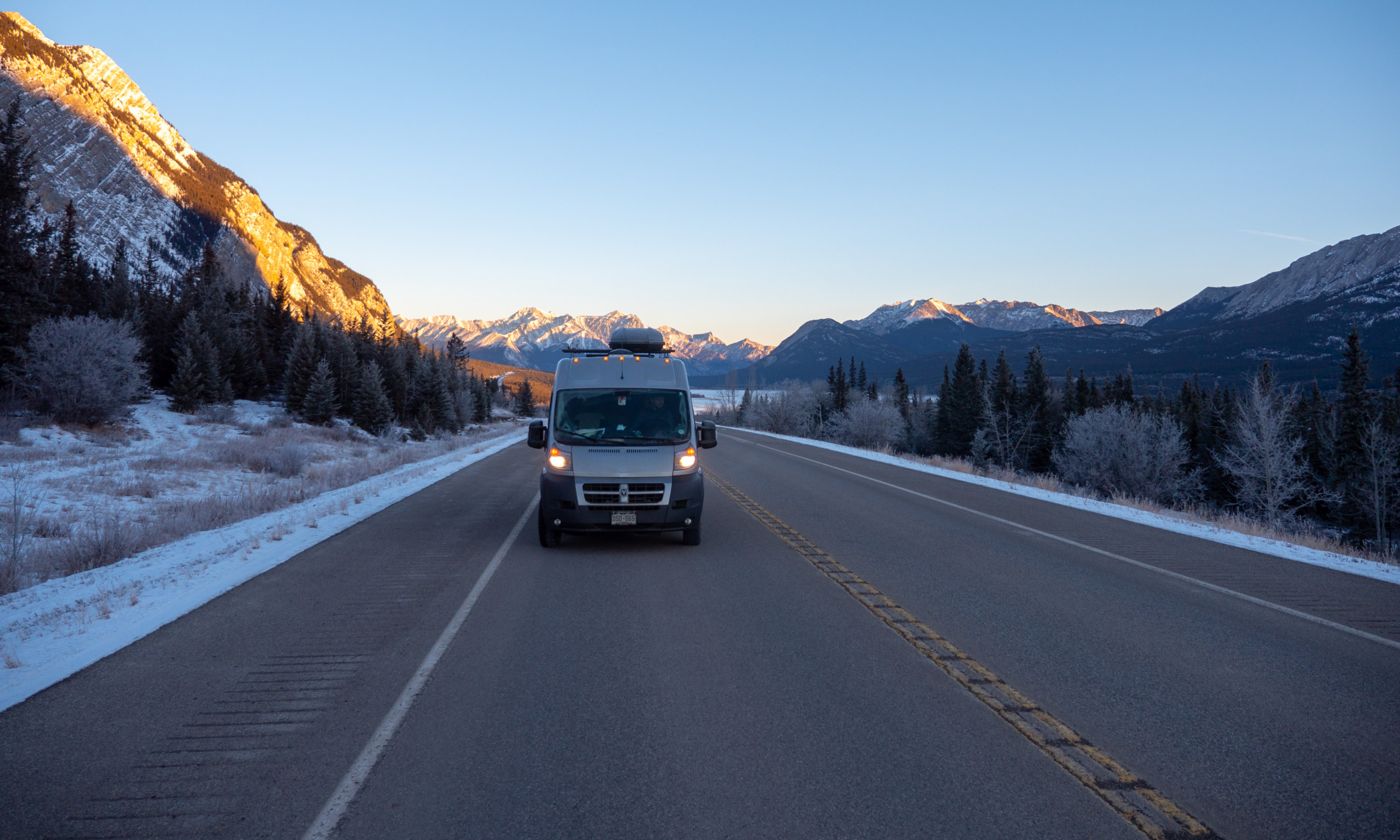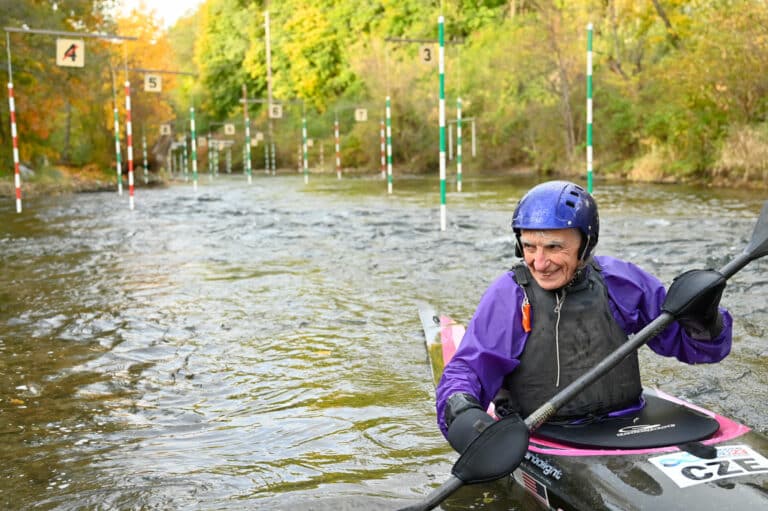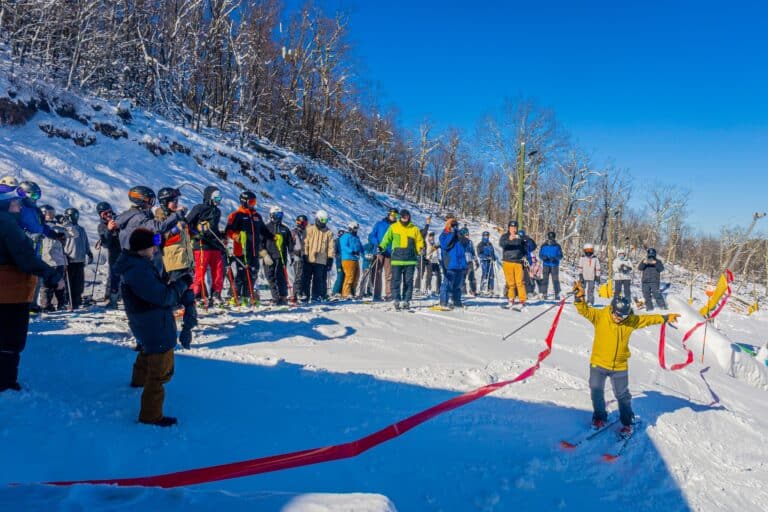Winter has already shown its face in Colorado this year. With the arrival of “OctSNOWber” we thought it would be a could time to share some of our tips and tricks for living in a van during the winter months. We spend most of the winter braving the cold and chasing snow in the Canadian Rockies. While this can be an extremely rewarding experience, it requires some serious preparation and planning to make sure we stay safe out there.
Having a good set of tires and chains is not an option, it is essential.

One of the most common questions we get about our van is whether we have four wheel drive or not. We don’t, and even if we did, a good set of winter rated tires would still top this list. You hear it all of the time, four wheel drive won’t help you one bit when you need to stop in a hurry. However, a good set of tires will. We run Falken Wildpeak A/T3Wtires. While these are technically not a dedicated snow tires, they are fully winter rated and specifically designed for deep snow. We chose these because we can run them year round without the need for a second set of tires specifically for the winter months. We also cary a set of tire chains as an extra insurance policy. There are many other options out there and you’ll need to find something that works best for you. We went to bed one night outside of Big Sky, Montana and woke up to several feet of unexpected snow. Luckily, our nice set of tires was able to get up back to the plowed pavement. Don’t wanna get stuck, and miss out on fresh tracks? Invest in good tires.
Having some simple recovery gear can get you out of a jam

While good tires will keep you safe, it’s good to carry some simple and inexpensive recovery gear in case you get stuck. We recommend carrying a light duty shovelto dig yourself out. A simple tow strapis also a good idea. It won’t help you when you’re alone, but in our experience, you’re never too far from a good ol’ boy with a beefed-up pickup just waiting to pull somebody out. This can also save you from an expensive tow in a pinch. We also carry a small 12volt air compressorto keep our tires properly inflated to ensure a good grip on snow and ice. There are some people out there who will say that airing your tires down in the deep stuff can help, however, we’ve never tried this so we’ll let you do your own research. Lastly, a bag of kitty litter can be a good option for getting some extra traction if you get stuck.
Finding a place to sleep is much harder in the winter

We found this out the hard way. It may seem obvious to some, but when traveling in unfamiliar places, we found it to be MUCH harder to find a safe place to sleep (legally). In the summer, it’s simple. Find a Forest Service road and drive down it until you find a place to park. In Winter, this is a terrible idea. Most campgrounds are closed and many forest service roads are closed or at the very least, impassible. Our advice is to plan ahead and try to find a place to park before the sun goes down. We had a few scares last year when driving into the unknown. Look into areas where snowmobiling and backcountry skiing are prevalent. We found that these trailheads and parking areas tend to be plowed, or at least packed down enough to make a safe place to sleep. In the winter we look for more heavily used areas.
A heater isn’t necessary, but it helps
There are plenty of heating options out there. Some are more expensive than others. For the long haul, a good gasoline or diesel heater is our favorite option. These forced air furnace style heaters are the most expensive, but also the safest to in an enclosed space. We use a Webasto, but there are plenty of knock-off heaters on the market as well. These forced air furnaces run off of your normal fuel tank, are super-efficient and have an external exhaust so you don’t have to worry about dangerous fumes in the van. This heating option is very dry and won’t introduce extra moisture in your van.
Many #vanlifers out there use propane (little buddy style) heaters. These are by far the most affordable option, however, there are several drawbacks. Propane heat introduces a lot of moisture and fumes into your vehicle. For this reason, proper ventilation and a carbon monoxide detector are crucial. These can also be a fire hazard.
If you want to tough it out, you could also invest in a good four-season sleeping bag and lots of blankets.
Remember, if you don’t vent your vehicle, you’ll wake up moist and that can be extremely unpleasant in the winter.
Despite your heater, liquids will freeze
This includes your water tank, water lines, and faucet. Unless you spend your entire time in your van with your heater running this WILL happen. Keeping your water tanks full will help them from freezing quickly. Whenever we know we won’t be in the van for a few hours we take extra care to drain our water lines and make sure there isn’t any pressure in our water pump or faucet. This season we are exploring some options like 12volt water tank and line heatersthat are designed for RVs. Our concern here is that anything with a heating element will drain your auxiliary batteries much faster. Only time will tell if this is a good fix or not.
Final Thoughts

Do it. Live the #vanlife in the winter and don’t let people tell you that you can’t. Just plan for bad weather, be prepared, and ski all of the powder days that your friends wish they could.
There is one way for this tour to be a reality– our sponsors! Sending a thank you shout out to all of our awesome sponsors that make this tour happen: Sea to Summit, Mountain House, Lowe Alpine, Leki, Big Agnes, Stio, Roofnest, and Franklin County, VA. For more info on our sponsors, check out the post, “Live Outside and Play is Back!”








